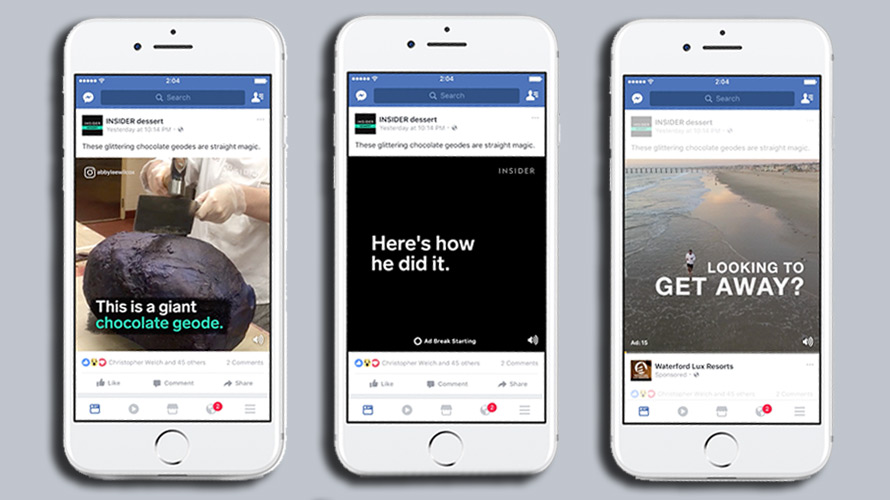Advertisers, Press Furious at Facebook Over Its Video “Mistakes”
Facebook advertisers are suing the social networking site after the firm failed to disclose it had lied about its video reach for years. Considering advertising is what carries the platform, it might be hard for the Silicon Valley firm to completely bounce back from this scandal.
The federal district court suit filed the past week in California states that Facebook had known it overstated the average time platform users spent watching videos long before it disclosed this information to advertisers in 2016. Advertising firms are alleging fraud, claiming Mark Zuckerberg’s venture lied about the measurement error and kept it under wraps, purposefully, for more than a year.
In addition to angering their main source of revenue, Facebook also left members of the press irate when it inflated video viewership and then kept quiet about it, as the company’s push to get advertisers to focus on video made newsrooms lay off countless reporters. After all, if Facebook was prioritizing video over text, news outlets such as Mic, MTV News, Fox Sports, and others assumed, keeping reporters on payroll was a waste of time. In the end, they weren’t completely far off, as Facebook tweaked its algorithm to prioritize Facebook Live videos in 2015, a new feature that put videos higher up in people’s news feeds.
Zuckerberg also reinforced the idea that the company was putting video first by saying in an interview the following year that “the vast majority of the content that people consume online [in a few years] will be video.” However, Facebook’s bet on video meant fewer site visits for news outlets. But even then, once the Facebook Live video feature rolled out, advertisers quickly noticed something wrong with the system, as many reported Facebook claimed a 100 percent average viewership rate on certain videos. It was clear that such a high rate of success was impossible, regardless of the videos’ quality, so advertisers complained.
This issue stemmed from the fact Facebook was factoring in all users who watched for more than three seconds, yielding watch times that were reportedly 60 to 80 percent higher than they should have been. As any Facebook user will tell you, seeing a video play for more than three seconds while scrolling down their news feed timeline doesn’t mean they are actually engaged and paying attention. Advertisers felt duped, and so did media outlets, which lost page viewership fast as they focused on putting out more video content.
Now, media outlets are learning the hard truth about market manipulation and how artificially changing the demand does not necessarily mirror what consumers truly want.
Learning the Hard Way
Former chief content officer for Teen Vogue and editor-in-chief of Out Phillip Picardi says the press isn’t happy about Facebook’s influence on the news industry. After news broke that advertisers had filed a lawsuit, Picardi said on Twitter that the whole situation “is especially maddening because the ‘pivot to video’ is not, as this proves, necessarily a consumer-led initiative.”
Others echoed the sentiment, with Nerdist writer Benjamin Bailey also tweeting about the incident. “Facebook outright lied and pushed this whole ‘pivot to video’ narrative. It’s all a big house of cards,” he said.
But while Facebook doesn’t deny that the numbers it fed to advertisers weren’t entirely truthful, the company claims it had no knowledge of any glitches until 2016, when it admitted it had inflated its numbers.
According to the suit, advertisers “discovered that Facebook’s inflation of average view times was far from an honest mistake,” quoting documents from Facebook that signal an alleged decision to “obfuscate the fact that we screwed up the math.”
But the firm remains defiant, claiming that it never meant to misinform anybody. “Suggestions that we in any way tried to hide this issue from our partners are false,” a company spokesperson said. “We told our customers about the error when we discovered it — and updated our help center to explain the issue.”
Much like a government agency that, which applies regulations that distort market signals and hurt consumers and service providers as a result, Facebook, a private company that is highly connected in Washington, distorted the market demands, forcing news organizations to make decisions that actually hurt them.
I wouldn’t advise anyone to hold their breath while waiting for members of the press to apply the same lesson they learned from this incident to government policy — especially policies they so passionately defend.
But perhaps this incident will change things for Facebook completely, as advertisers may think twice before trusting the tech firm. As users have started losing confidence in Facebook after the firm’s decision to purge hundreds of popular pages from the platform, it will be only a matter of time until a strong competitor enters the picture.











